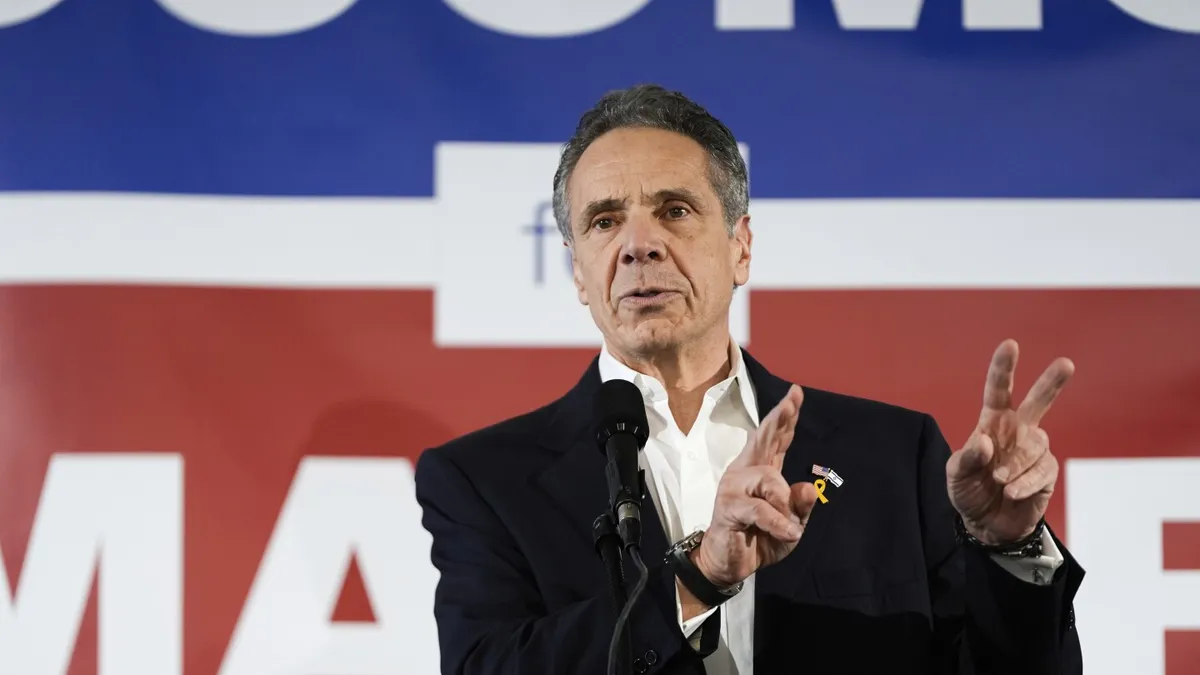
Since his resignation as New York's governor, speculation has swirled around whether Andrew Cuomo would attempt to re-enter the political arena. That moment arrived on Saturday when the former governor announced his candidacy for mayor of New York City. The pivotal question now is whether voters are ready to welcome him back into public office.
In a campaign announcement video released on Saturday, followed by a speech on Sunday, Cuomo painted a picture of a New York City in crisis. He portrayed himself as a decisive leader capable of addressing pressing issues such as homelessness and soaring housing costs. However, his entry into the race was met with immediate backlash from critics who argue that he should not be given a second chance.
Cuomo's resignation from the governorship came in August 2021, amidst looming impeachment proceedings. A report by the state’s attorney general concluded that Cuomo had sexually harassed at least 11 women, with allegations ranging from unwanted touching and flirtation to more serious accusations, including groping. Despite a criminal complaint from one aide, the Albany district attorney declined to pursue charges, citing insufficient evidence.
Under immense pressure from prominent Democrats, including then-President Joe Biden, former House Speaker Nancy Pelosi, and U.S. Senators Chuck Schumer and Kirsten Gillibrand, Cuomo ultimately stepped down. While he acknowledged some of his behavior was inappropriate, he denied the most severe allegations against him, particularly those of sexual assault.
Among the voices of dissent is Lindsey Boylan, the first woman to publicly accuse Cuomo of harassment. In an essay for Vanity Fair, she argued that allowing him to return to public office would be a serious error. Boylan criticized Cuomo’s previous tactics to undermine his accusers, stating, “Men like Cuomo never really lose power.” She suggests that the political dynamics surrounding such figures are still influential, emphasizing the need for vigilance against the return of powerful men who have faced allegations of misconduct.
In his initial comments regarding the sexual harassment allegations, Cuomo addressed the issue only indirectly. He stated, “Did I make mistakes, some painfully? Definitely... I hope to show that every day.” He has previously attributed his downfall to the phenomenon of cancel culture, asserting that he has learned and grown from his past errors.
During his tenure as governor, Cuomo accomplished significant legislative and infrastructural milestones. Notably, he championed the legalization of same-sex marriage in New York in 2011, and his administration oversaw major overhauls of key transportation hubs like LaGuardia Airport and Penn Station. He implemented policies such as raising the minimum wage to $15 and introducing paid family leave for workers. His administration also initiated a $1 billion economic revitalization program for the Buffalo metropolitan area, though it was marred by a corruption scandal involving several of his allies.
Cuomo gained national recognition during the COVID-19 pandemic for his daily briefings, which captivated audiences far beyond New York. He enforced some of the strictest social distancing regulations and established vaccination sites statewide. However, his administration faced criticism for underreporting COVID-19 deaths in nursing homes, a move seen as an attempt to deflect blame from a controversial policy allowing the readmission of COVID-19 patients back into nursing homes.
Cuomo’s decision to re-enter the political landscape comes at a unique time, as current New York City Mayor Eric Adams faces federal corruption charges. Allegations suggest that Adams accepted illegal campaign contributions and gifts in exchange for political favors. As Adams' situation evolves, the political climate may create an opening for Cuomo, especially if no significant moderate challenger emerges in the primary race. This could force voters to choose between liberal candidates whose views may not align with theirs and two prominent Democratic figures with tarnished reputations.
As the campaign unfolds, all eyes will be on whether the city’s voters are willing to forgive Cuomo and support his bid for mayor.